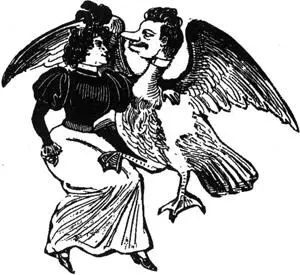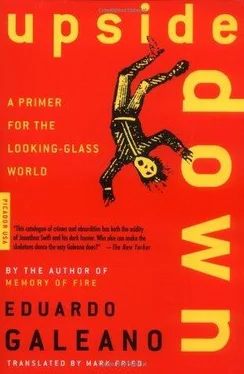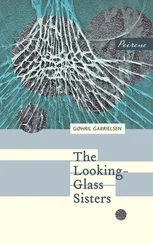“There’s a hierarchy,” he said. And he explained that society is like a soccer stadium: “A hundred thousand people can squeeze into the stadium, but only five hundred can sit in the boxes. No matter how much you love the people, you can’t fit them all in the boxes.”
A McDonald’s ad shows a boy eating a hamburger. “I don’t share,” he says. This dummy hasn’t learned that now we’re supposed to give away our leftovers instead of tossing them in the garbage. Solidarity is still considered a useless waste of energy and critical consciousness is but a passing phase of stupidity in human life, but the powers that be have decided to alternate the carrot with the stick. Now they preach social assistance, which is the only form of social justice allowed. Argentine philosopher Tato Bores, who worked as a comedian, knew all about this doctrine years before ideologues started promoting it, technocrats started implementing it, and governments started adopting it in what some call the Third World. “You ought to give crumbs to the elderly,” Don Tato counseled, “instead of to the pigeons.”
The Field
Do people watch the game or do they play it?
When a democracy is real, shouldn’t people be on the field? Is democracy exercised only every four, five, or six years, when you cast your vote? Or is it exercised every day of every year?
A Latin American experiment in daily democracy is under way in the Brazilian city of Pôrto Alegre. There residents debate and decide what to do with the municipal funds available for each neighborhood, and they approve, amend, or quash proposals from the local government. Staff and politicians propose, but it’s the people who dispose.
The most mourned saint of the end of the century, Princess Diana, having been abandoned by her mother, tormented by her mother-in-law, cheated on by her husband, and betrayed by her lovers, found her vocation in charity. When she died, Diana was the head of eighty-one public charities. If she were still alive, she would make a great minister of the economy in any government of the South. After all, charity consoles but does not question. “When I give food to the poor, they call me a saint,” said Brazilian bishop Helder Cámara. “And when I ask why they have no food, they call me a Communist.”
Unlike solidarity, which is horizontal and takes place between equals, charity is top-down, humiliating those who receive it and never challenging the implicit power relations. In the best of cases, there will be justice someday, high in heaven. Here on earth, charity doesn’t worry injustice, it just tries to hide it.
The twentieth century was born under the sign of revolution, but the adventurous attempts to build societies based on solidarity were shipwrecked, leaving us to suffer a universal crisis of faith in the human capacity to change history. Stop the world, I want to get off. In these days of collapse, the number of penitents — repenters of political passion or of all passion — multiplies. More than a few fighting cocks have become hens a-laying, while dogmatists, who thought they were safe from doubt and discouragement, either take refuge in nostalgia for nostalgia that evokes more nostalgia or simply lie frozen in a stupor. “When we had all the answers, they changed the questions,” wrote an anonymous hand on a wall in the city of Quito.
With a speed and efficiency that would arouse Michael Jackson’s envy, many revolutionary activists and parties of the red or pink left are undergoing an ideological color change. I once heard it said that the stomach shames the face, but contemporary chameleons prefer to explain it another way: democracy must be consolidated, we have to modernize the economy, there is no alternative but to adapt to reality.
Reality, however, says that peace without justice, the peace we enjoy today in Latin America, is a field sown with violence. In Colombia, the country that suffers the most violence, 85 percent of the dead are victims of “common violence,” and only 15 percent die from “political violence.” Could it be that common violence somehow expresses the political impotence of societies that have been unable to establish a peace worthy of the name?
History is unambiguous: the U.S. veto has blocked or closed off to the point of strangulation most of the political experiments that have sought to get at the roots of violence. Justice and solidarity have been condemned as foreign aggression against the foundations of Western civilization, leaving it plain as can be that democracy has limits and you’d better not test them. The story is a long one, but it’s worth recalling at least the recent examples of Chile, Nicaragua, and Cuba.
At the beginning of the seventies, when Chile tried to take democracy seriously, Henry Kissinger dotted the i ’s and crossed the t ’s of the White House decree against that unpardonable foray. “I don’t see why,” he said, “we need to stand by and watch a country go Communist because of the irresponsibility of its own people.”
The process that led up to General Pinochet’s coup d’état left hanging a few questions practically no one asks anymore about relations between countries in the Americas and the imbalance in the rights they enjoy. Would it have been normal for President Allende to say that President Nixon was not acceptable to Chile, just as President Nixon said with a straight face that President Allende was not acceptable to the United States? Would it have been normal for Chile to organize an international credit and investment blockade against the United States? Would it have been normal for Chile to pay off U.S. politicians, journalists, and military officers and then encourage them to drown democracy in blood? And suppose Allende had mounted a coup d’état to block Nixon’s inauguration and another to overthrow him? The great powers that govern the world practice terrorism without compunction, since their crimes lead them not to the electric chair but to the thrones of power. And the crime of power is the mother of all crimes.

Nicaragua was sentenced to ten years of war in the 1980s when it committed the insolence of being Nicaragua. An army recruited, trained, armed, and led by the United States tormented the country, while a campaign to poison world opinion portrayed the Sandinista revolution as a conspiracy hatched in the basement of the Kremlin. Nicaragua wasn’t attacked because it was a satellite of a great power but to force it back into being one. Nicaragua wasn’t attacked because it lacked democracy but so that democracy would be lacking. While fighting the war, the Sandinistas also taught half a million people how to read and write, cut infant mortality by a third, and inspired a sense of solidarity and a yearning for justice in many, many people. That was their challenge and that was their damnation. In the end, exhaustion from the long, devastating war cost the Sandinistas an election. And later, as tends to happen, several of their leaders sinned against hope by disowning their own words and deeds in an astonishing about-face.
During the years of war, peace reigned in the streets of Nicaraguan towns. Since peace was declared, the streets have become scenes of war, the battlegrounds of common criminals and youth gangs. A young U.S. anthropologist, Dennis Rodgers, joined a group of toughs in one of the worst barrios of Managua. He found that such gangs are indeed the violent response of young people to a society that excludes them, and they flourish not only because of grinding poverty and the absence of any hope for work or study but also out of a desperate search for some sort of identity. In the seventies and eighties, years of revolution and war, young people saw themselves in their country, in the colony that wanted to become a country, but the youth of the nineties were left without a mirror. Now they are patriots of the barrio, or of a block in the barrio, and they fight to the death against gangs from enemy neighborhoods or enemy blocks. By defending their territory and organizing themselves to fight and steal, they feel a little less alone and a little less poor in their atomized and impoverished world. They share what they steal and spend the loot from their muggings on glue, marijuana, drink, bullets, knives, Nike shoes, and baseball caps.
Читать дальше












